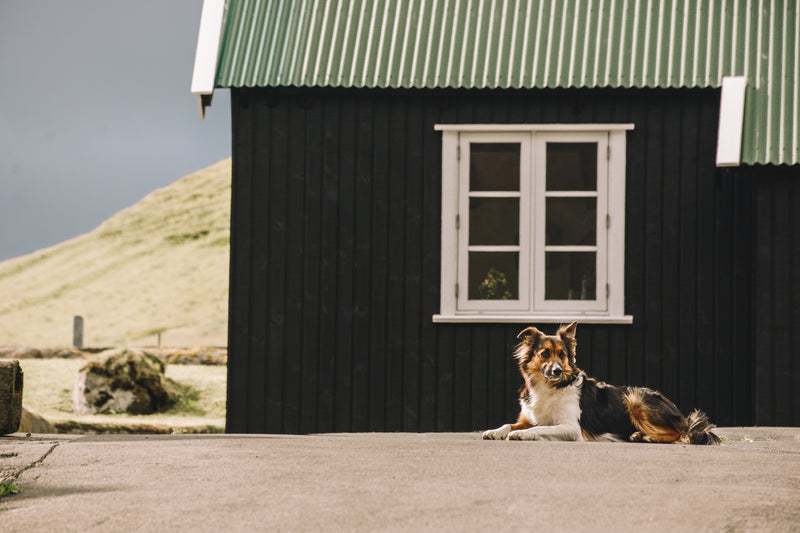I Need a Pet: The Ultimate Guide to Finding the Perfect Companion
Are you feeling lonely or in need of a companion to brighten up your life? Look no further than adopting a pet! In this ultimate guide for “I Need a Pet”, we’ll explore the benefits of pet ownership and provide tips for finding the perfect companion. Whether you’re looking for a playful pup, a cuddly cat, or something more exotic, adopting a pet can provide you with unconditional love and companionship. Let’s get started on your journey towards finding the perfect furry friend.

The Benefits of Pet Ownership
Pet ownership has numerous benefits, both for your physical and mental health. In addition to providing companionship, pets can also help reduce stress and anxiety, improve your mood, and increase your socialization. Here are some of the most significant benefits of owning a pet:
Physical health benefits
Pets can help you to stay physically active and healthy, which is especially important for people who spend long hours sitting down. Here are some of the physical health benefits associated with pet ownership:
- Exercise: Many pets, especially dogs, require regular exercise to stay healthy. Taking your dog for a walk or playing with your cat can help keep you active and increase your daily exercise.
- Decreased risk of heart disease: Studies have shown that pet owners have a lower risk of heart disease and are less likely to suffer from high blood pressure.
- Lowered blood pressure: Petting your dog or cat can help lower your blood pressure and reduce stress levels.
Mental health benefits
Pets can have a positive impact on your mental health by providing companionship, reducing feelings of loneliness and depression, and boosting your mood. Here are some of the mental health benefits associated with pet ownership:
- Reduced stress and anxiety: Spending time with your pet can help reduce stress and anxiety levels and boost your mood.
- Improved mood: Pets can help improve your mood and reduce feelings of depression and loneliness.
- Increased socialization: Owning a pet can provide you with more opportunities to meet new people and make friends.
Social benefits
Pets can be great icebreakers and can help you connect with other people. Here are some of the social benefits associated with pet ownership:
- Increased opportunities for socialization: Owning a pet can provide you with more opportunities to meet new people and make friends.
- Improved interpersonal skills: Taking care of a pet can help improve your interpersonal skills and enhance your ability to communicate and connect with others.
Emotional benefits
Pets can provide us with unconditional love and companionship, which can be especially important for those who live alone or suffer from mental health issues. Here are some of the emotional benefits associated with pet ownership:
- Companionship: Pets provide us with unconditional love and companionship, which can be especially important for those who live alone or suffer from mental health issues.
- Unconditional love: Pets don’t judge us, and they love us unconditionally, which can be incredibly comforting and reassuring.
- Reduced feelings of loneliness and depression: Owning a pet can help reduce feelings of loneliness and depression and provide a sense of purpose and fulfillment.
Overall, pet ownership can have a profound impact on our physical, mental, and emotional well-being. It’s important to carefully consider the responsibilities and costs associated with owning a pet, but for many people, the benefits far outweigh the drawbacks.

Choosing the Right Pet
Choosing the right pet is crucial for a successful pet ownership experience. To ensure that you and your new companion are a good match, it is important to consider several factors when choosing a pet.
Factors to Consider
Take the following factors into account when choosing a pet:
- Lifestyle factors: Consider your lifestyle when choosing a pet. Do you have a lot of free time to spend with your pet, or are you frequently away from home? Do you have a large yard or live in an apartment?
- Housing factors: Consider the size and layout of your home when choosing a pet. Do you have enough space for a large dog, or would a smaller animal be more appropriate?
- Financial factors: Before adopting a pet, it is important to factor in the costs of pet ownership. Consider the cost of food, veterinary care, grooming, and other expenses.
Pet Personality and Breed Characteristics
Each pet and breed have different personalities and characteristics to consider when choosing a pet. Here are some general characteristics to consider:
Dogs:
When choosing a dog breed, consider the following factors:
- Energy levels: Different breeds have different energy levels, so choose a breed that matches your lifestyle. For instance, if you enjoy long walks and runs, a high-energy breed like a Border Collie or a Labrador Retriever might be a good fit. If you prefer a more laid-back lifestyle, a breed like a Basset Hound or a Bulldog might be a better choice.
- Size and space requirements: Consider the size of your home and yard when choosing a dog. Large breeds like Great Danes or Saint Bernards need a lot of space to move around, while smaller breeds like Chihuahuas or Pomeranians can be comfortable in small apartments.
- Grooming needs: Some breeds require more grooming than others, so consider your willingness and ability to groom your dog regularly. Breeds like Poodles or Bichon Frises need regular trips to the groomer, while breeds like Beagles or Boxers require minimal grooming.
- Temperament: Different breeds have different temperaments and personalities, so choose a breed that matches your personality and lifestyle. For example, if you have children, a breed like a Golden Retriever or a Labrador Retriever might be a good choice, as they are typically friendly and gentle with kids. If you live in an apartment or have close neighbors, a breed like a Basenji or a Greyhound might be a better choice, as they are typically quieter and less prone to barking.
- Exercise requirements: Different breeds have different exercise requirements, so choose a breed that matches your lifestyle. For example, if you enjoy long walks or runs, a breed like a Border Collie or a Siberian Husky might be a good fit. If you prefer a more relaxed lifestyle, a breed like a Bulldog or a Basset Hound might be a better choice.
Cats:
When choosing a cat breed, consider the following factors:
- Activity levels: Some breeds are more active than others, so choose a breed that matches your lifestyle. For example, if you want a cat that is playful and energetic, a Bengal or a Siamese might be a good fit. If you prefer a more laid-back cat, a breed like a Persian or a Ragdoll might be a better choice.
- Personality traits: Different breeds have different personalities, so choose a breed that matches your personality. For example, if you want a cat that is affectionate and loves to cuddle, a breed like a Himalayan or a Maine Coon might be a good choice. If you prefer a more independent cat, a breed like a Russian Blue or a Scottish Fold might be a better fit.
- Grooming needs: Some breeds require more grooming than others, so consider your willingness and ability to groom your cat regularly. Breeds like Persians or Himalayans need daily grooming, while breeds like Siamese or Burmese require minimal grooming.
Birds:
When choosing a bird as a pet, consider the following factors:
- Size and noise level: Consider the size and noise level of the bird when choosing a pet. Larger birds like Macaws or African Greys need a lot of space and can be noisy, while smaller birds like Finches or Canaries are quieter and require less space.
- Diet and care: Different birds have different dietary requirements, so research the specific needs of the bird you’re considering before adopting.
Fish:
When choosing a fish as a pet, consider the following factors:
- Tank size and maintenance: Consider the size of the tank you’ll need and the maintenance requirements of the fish when choosing a pet. Some fish require more care than others, so research the specific needs of the fish you’re considering before adopting.
- Water requirements: Different fish have different water requirements, so research the specific needs of the fish you’re considering before adopting.
- Fish compatibility: Some fish are more compatible with others, so research the specific needs of the fish you’re considering before adopting.
Other pets:
When choosing a small pet like a hamster, rabbit, or guinea pig, consider the following factors:
- Size and space requirements: These pets are small and require relatively little space, making them a good choice for those who live in apartments or smaller homes. They also have different personalities and activity levels, so choose a pet that matches your lifestyle.

Preparing for Pet Adoption
Before adopting a pet, it’s important to do your research and prepare your home for your new companion. Here are some things to consider:
Researching Pet Adoption
When considering pet adoption, it is important to have a good understanding of the process and what to expect. Here are some tips to help you prepare:
- Benefits of Adopting from a Shelter: Adopting a pet from a shelter is a responsible way to give an animal a second chance at life. Additionally, shelters provide valuable resources and support to new pet owners, including vaccinations, spay/neuter services, and behavioral training.
- Finding a Reputable Pet Adoption Agency: Research different pet adoption agencies in your area to find one that is reputable and has a good track record of matching pets with new owners. Read reviews and ask for recommendations from friends and family.
- Preparing for the Adoption Process: Contact the adoption agency to find out what documents and information you’ll need to provide, and prepare yourself for the adoption process. Be prepared to answer questions about your home, lifestyle, and previous experience with pets.
Getting Your Home Ready
Before bringing your new pet home, it’s important to make sure your home is safe and welcoming. Here are some things to consider:
- Pet-Proofing Your Home: Remove any potential hazards or dangers from your home, including poisonous plants, electrical cords, and sharp objects. Make sure your home is a safe space for your new pet to explore.
- Purchasing Essential Supplies: Purchase all the necessary supplies, including food, water bowls, toys, and bedding, before bringing your new pet home. Make sure to choose the right type of food and supplies for your pet’s age and breed.
- Creating a Safe Space for Your Pet: Create a comfortable and safe space for your pet to sleep and relax, such as a crate or a designated area of your home. This will give your pet a sense of security and help them adjust to their new environment.

Understanding the Cost of Pet Ownership
Owning a pet can be a rewarding experience, but it can also be expensive. Here are some costs to consider when adopting a pet:
- Adoption Fees: Adoption fees can vary depending on the adoption agency and the type of pet you are adopting. Be sure to budget for adoption fees when considering pet ownership.
- Food and Supplies: Food, water bowls, toys, bedding, and other supplies can add up over time. Make sure to budget for these costs and choose high-quality supplies that will keep your pet healthy and happy.
- Veterinary Care: Regular checkups, vaccinations, and preventative care can be costly, as well as emergency care in case of illness or injury. Consider pet insurance or a savings plan to help cover these costs.
- Grooming: Grooming costs can vary depending on the type of pet you have and their grooming needs. Factor in the cost of grooming services or supplies when considering pet ownership.
- Training: Training costs can vary depending on the type of pet you have and their level of obedience. Consider investing in training classes or working with a professional trainer to help your pet develop good behavior habits.

The Pet Adoption Process
Once you’ve prepared your home and researched the adoption process, it’s time to begin the adoption process. Here’s what to expect:
Applying for Pet Adoption
The first step to adopting a pet is filling out an adoption application. This application will require you to provide detailed information about yourself and your lifestyle to help the adoption agency match you with a compatible pet. Once you have submitted the application, the agency will review it to determine if you meet their adoption requirements. This process may take several days.
Meeting Potential Pets
Once your application has been approved, you’ll have the opportunity to meet potential pets. This is an excellent time to ask questions about the pet’s history and behavior. It’s also important to take your time and get to know the pet before making a decision.
Finalizing the Adoption
Once you’ve found the perfect pet, you’ll need to complete the necessary paperwork and pay any adoption fees. Some agencies may require a home visit to ensure that your home is a safe environment for the pet. Once all the paperwork is complete, you can take your new companion home.

Bringing Your Pet Home
Bringing your new pet home can be an exciting time, but it’s important to remember that it may take some time for your pet to adjust to their new environment. It’s important to introduce your pet to their new home slowly, allowing them to explore and get comfortable at their own pace. Creating a routine for your pet can also help them adjust to their new life.

Insider Tips for Pet Adoption
Adopting a pet is a big decision, and it’s important to be prepared. Here are some insider tips to help make the process smoother and more enjoyable:
- Be patient: It may take time to find the perfect pet for you and your lifestyle. Don’t rush the process and be patient in your search.
- Consider adopting an older pet: Older pets can make great companions and are often already trained and housebroken.
- Research breed-specific health concerns: Some breeds of dogs and cats may be more prone to certain health issues. Research these concerns before adopting a pet to ensure that you are prepared to provide the necessary care.
- Spend time with the pet before adopting: Spend some time with the pet before adopting to get to know their personality and ensure that you are a good match.
- Prepare your home: Pet-proof your home and purchase all necessary supplies before bringing your new pet home. Creating a safe space for your pet can also help them adjust to their new environment.

After Pet Adoption
Caring for your pet is an ongoing responsibility that requires time, effort, and commitment. Here are some things to keep in mind:
Caring for Your Pet
Feeding and watering your pet is essential to keep them healthy and hygienic. Make sure you provide your pet with a healthy, balanced diet, and plenty of fresh water. Your pet should be groomed regularly, including brushing their fur, cleaning their teeth, and trimming their nails. A well-groomed pet is a happy pet, and grooming sessions can also be a bonding experience for you and your furry friend. Additionally, pets require regular exercise and playtime to stay active and healthy.
Pet Health and Wellness
Your pet’s health and wellness is of utmost importance. Regular check-ups and vet visits are essential to ensure that your pet is healthy and up-to-date on their vaccinations. Keep your pet up-to-date on their vaccinations and provide them with preventative care, such as flea and tick prevention. Be aware of common pet health concerns, such as obesity, dental problems, and allergies, and take steps to prevent and treat these issues. For instance, ensure that your pet gets enough exercise, maintain a healthy diet and grooming routine, and consult your veterinarian if you notice any unusual symptoms or behaviors. Taking proactive steps to ensure your pet’s health and wellness will help you enjoy a happy and healthy life together.
Conclusion
Congratulations! You’re now equipped with the knowledge to find the perfect pet for your lifestyle. Pet adoption is a rewarding experience that not only benefits you but also helps animals in need. Remember to research before adopting, prepare your home, and care for your pet properly. Providing love, attention, and regular checkups are the keys to a happy pet. Don’t forget that you’re not just taking home a new family member, you’re also saving a life and making a difference in the world.
If you’re ready to adopt a pet, visit our shop today and find your new furry friend.




Leave a Reply